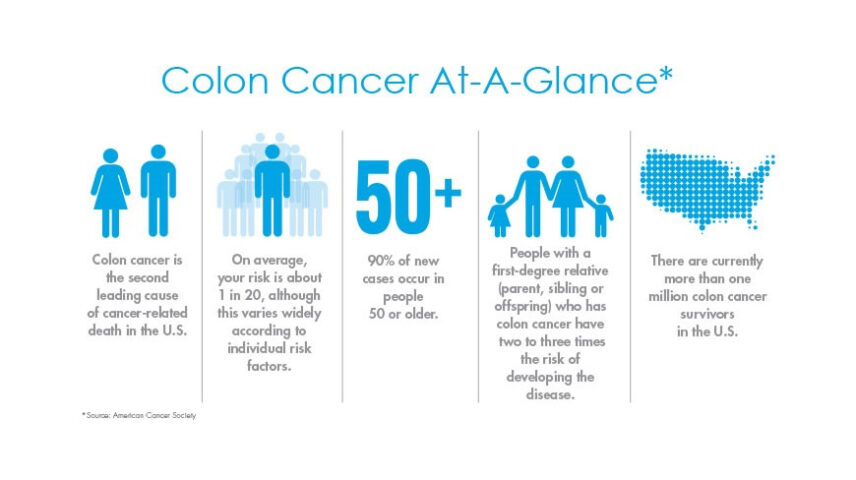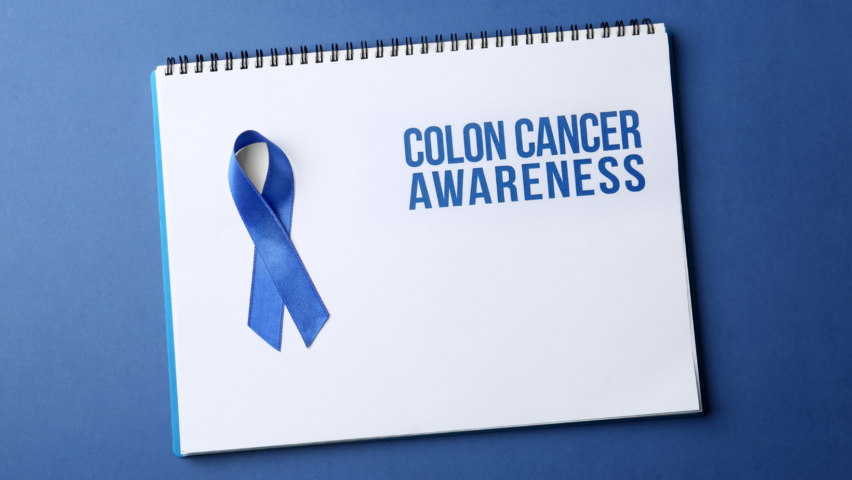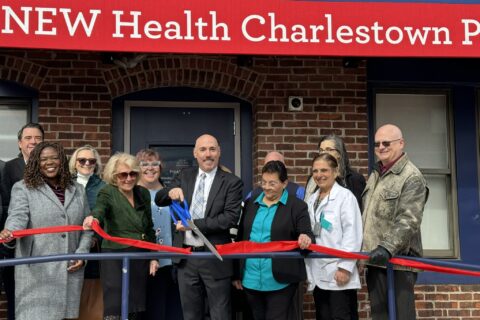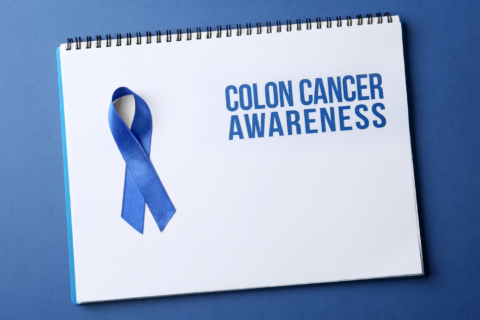By Meghan Curran, FNP
March is colorectal cancer (CRC) awareness month, an opportunity to recognize the now leading cause of cancer death in men and second leading cause in women younger than fifty years. It is estimated that there will be over 145,000 new colon or rectal cancer diagnoses along with 50,000 CRC deaths in the United States this year.
Although the overall rate of colon or rectal cancer diagnosis have declined in older adults since the mid-1980’s, individuals under 50 years old have had increasing rates of 1-2% since the mid-1990’s. This means that screening for these cancers has become more vital than ever.

Colorectal cancer screening tests can find polyps, a projecting growth of tissue from a surface in the body, which can be removed before they potentially develop into cancer. They can also detect cancers at earlier stages when treatment has the best chance of working. The frequency, timing, and type of CRC screening test recommended is based on individual risk factors. Screening for CRC for those with average risk should begin at age 45.
Those who have risk factors such as a personal history or family history of colon cancer, polyps, or inflammatory bowel disease will often be advised to have earlier and more frequent screening. People of average risks have a variety of screening options such as home stool collection tests that looks for blood or DNA that could be a sign of polyps or cancers or testing that is performed at a healthcare facility such as CT colonography, sigmoidoscopy or colonoscopy.
You can decide with your healthcare provider which test is best for you based on your medical history, availability, and individual preference. Screening tests are performed to detect cancers in asymptomatic patients. Your healthcare provider will order diagnostic testing if you have symptoms of CRC. These include a change in bowel habits, blood in stool, diarrhea, constipation, abdominal pain that persists and unexplained weight loss.
For colorectal cancer awareness month, NEW Health encourages everyone to talk to their healthcare provider regarding screening options and educate their family and friends on colorectal cancer. CRC screening and seeking care if you have symptoms in a timely manner could potentially be lifesaving.






